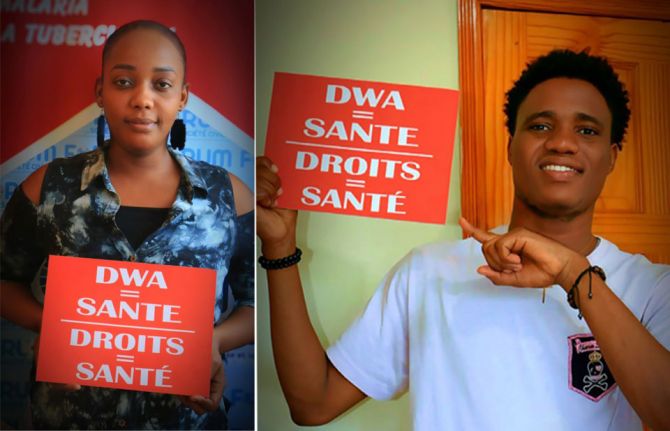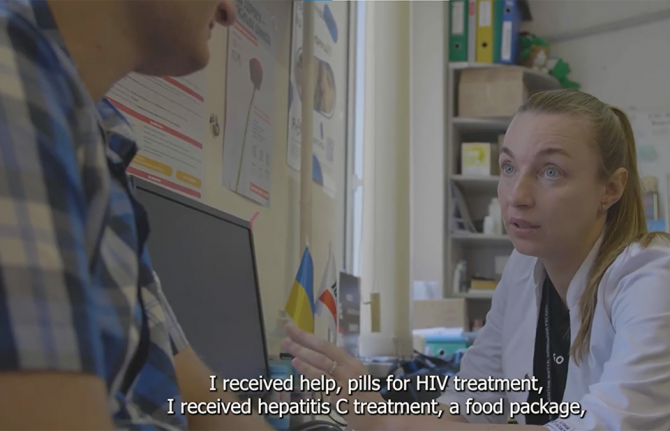
Feature Story
How to create sustainable HIV responses in the Caribbean
26 June 2013
26 June 2013 26 June 2013
Participants in the UNAIDS/PEPFAR Caribbean Meeting on Strategic HIV Investment and Sustainable Financing held in Kingston, Jamaica from May 29th - 30th 2013
For almost ten years Ainsley Reid has had access to life-saving antiretroviral treatment in his native Jamaica. The payoff comes not just in his individual health, but in his work raising awareness about HIV prevention and positive living as a local programme coordinator at Jamaica’s HIV/STI Programme. “Like me, many of my colleagues who have been on HIV treatment are ready and able to work, to take care of their families, to contribute to society,” he said.
Mr Reid is one of many who are working to ensure HIV responses in the Caribbean are more than pills or abstract HIV programmes.
“It’s about people! It is about keeping people living with HIV well so that they can be productive and creating societies that allow them to thrive,” said the Director of the UNAIDS Caribbean Regional Support Team, Ernest Massiah, at a meeting to help countries in the region build financially sustainable HIV programmes.
The review, which took place in Kingston, Jamaica from 29-30 May, reviewed countries’ HIV epidemics and responses and explored how HIV programmes could be built to succeed in the long run. “We have to look carefully at where we can make efficiencies, where we are spending more than we should to get certain results and where we must stop doing the things we are accustomed doing because they are not having the impact we would like,” Mr Massiah said.
The dialogue which was jointly supported by UNAIDS Caribbean and the United States President's Emergency Plan For AIDS Relief (PEPFAR) included international development partners, civil society organizations and representatives from eight Caribbean ministries of health, finance and planning.
Since 2000, the region’s investments in reducing stigma and discrimination as well as scaling up access to HIV treatment have shown results. New HIV infections dropped 42% between 2001 and 2011; 67% of people living with HIV who need treatment now have access to it; and AIDS-related deaths continue to decline with a 48% drop recorded between 2005 and 2011. The number new HIV infections among children has gone down by 32% from 2009 to 2011.
It’s about people! It is about keeping people living with HIV well so that they can be productive and creating societies that allow them to thrive.
Director of the UNAIDS Caribbean Regional Support Team, Ernest Massiah
However, currently two-thirds of the financing for HIV programmes in the Caribbean as a whole comes from international partners. With several donor agencies soon to reduce or withdraw support due to changes in eligibility criteria for upper- and middle-income countries, and with Caribbean economies feeling the crunch of the global economic slowdown, the gains of many national HIV programmes are at risk.
The Director of the United States Agency for International Development (USAID) Mission in Jamaica, Denise Herbol, noted that the partnerships of international agencies are meant to help countries reach a point where their HIV programmes are “led, implemented and eventually paid for” by their own governments, communities, civil society and private sectors.
What does that mean for the Caribbean? Experts agree that the regional tendency to direct most HIV prevention resources to the general population must end. Instead, more work is needed to understand who is most at risk and why. And then, concerted work will be required to provide HIV prevention programmes to the populations most affected by HIV.
Participants highlighted the need to lower administration costs related to HIV programming and stressed that the region must intensify its joint efforts to secure lower prices for drugs. But much of the work involved in making choices about where to invest, involves confronting deep-seated social prejudices and inequities.
Karl Theodore, a health economist from the University of the West Indies in Trinidad, urged participants to position HIV as an issue that places the very survival of Caribbean societies at stake.
“There is a sense in the region that things are getting better and maybe the epidemic is now under control so we don’t have to put as much resources in it. That is a mistake. The epidemic is undermining something that is crucial to us—our human resource. If we don’t keep up the investments we are going to pay a very heavy price,” Mr Theodore emphasised.
“These discussions on the financial sustainability of the HIV response ignite a spark of hope in my heart,” Mr Reid said. “We have a lot more work to do, a lot more systems to strengthen and more people to reach so we can end the HIV crisis and save lives,” he added.
For more information on the meeting and its outcomes go to www.unaidscaribbean.org
Related
 Comprehensive Update on HIV Programmes in the Dominican Republic
Comprehensive Update on HIV Programmes in the Dominican Republic

19 February 2025


